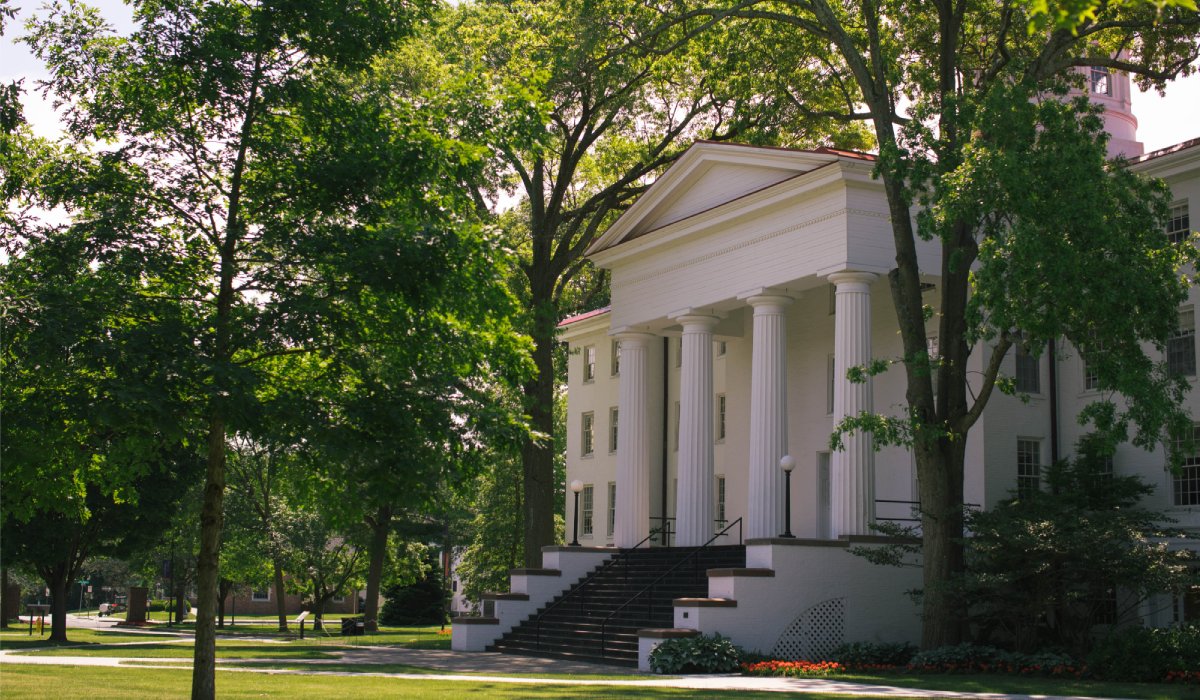
In October 2020, Gettysburg College began a comprehensive strategic planning process that brought together the voices of students, faculty, staff, and alumni alike. The goal was to develop a compelling vision for the future of our storied institution. Following the enthusiastic endorsement of our Board of Trustees, we are proud to share this vision with the world.
Living Our Promise: The Strategic Direction for Gettysburg College is born from our greatest strengths as a community and it ensures that we provide today’s students with an education in the liberal arts and sciences that is relevant, meaningful, and amplifies the most transformational aspects of our hallmark Gettysburg experience.
“Through our new Strategic Direction, we hope to instill in our students an instinct for inquiry and exploration, for reason and empathy, for introspection and reflection, for adaptability and resilience,” said Gettysburg College President Bob Iuliano. “Our education will ready them for their role as active citizens and ensure that they are well-equipped to thrive both personally and professionally.”
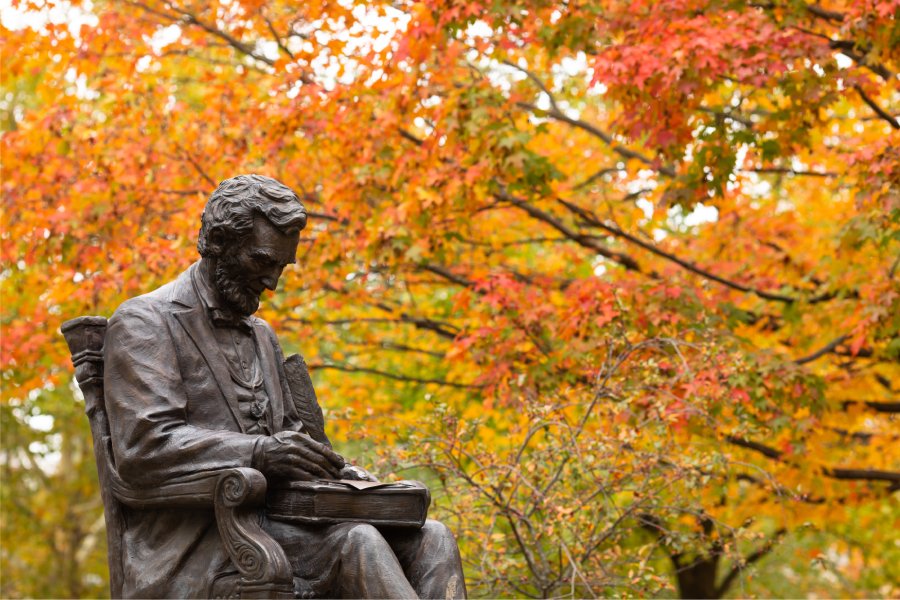
Our Promise is A Consequential Education
Since our founding in 1832, Gettysburg College has promised every student A Consequential Education—an education that gives them greater insight into who they are, what they want to accomplish, and how they will define and lead their own consequential life.
What makes our education consequential? It’s our people, our place, and our distinctive approach to teaching and learning. This combination is uniquely Gettysburg. It cannot be found anywhere else.
While our promise of A Consequential Education remains timeless, the shape of that promise—our approach—has rightly changed over time in response to changing circumstances for each generation of Gettysburg graduates.
The College’s new Strategic Direction aims to reimagine our approach for today’s Gettysburgians, so they too can rise to challenges and opportunities of their time.
Read below to learn about our new Gettysburg Approach and the Four Areas of Focus that will bring this vision to fruition.
The Gettysburg Approach
Our Gettysburg Approach is A Consequential Education in practice: a renewed, evolved, and intensive focus on how we deliver our signature undergraduate experience.
Designed to benefit the whole student, throughout the entirety of their life and career, the Gettysburg Approach will build within every student a breadth and depth of knowledge and set of enduring skills—cultivated both inside and outside of the classroom—to prepare them to thrive in a world marked by change and adaptation.
Knowledge
The first anchor in our Gettysburg Approach is to provide students with a breadth and depth of knowledge through a rigorous and contemporary education in the liberal arts and sciences.
Our world-class faculty will bring to life the arts, humanities, social sciences, and natural sciences, ensuring that Gettysburg students are exposed to viewpoints across disciplines and that they gain a nuanced understanding of the human experience.
Through our premier academics, every Gettysburg College student will enhance their drive for action, grow as effective leaders and socially responsible citizens, and develop the capacity to pursue knowledge throughout their lives.
“The Gettysburg Approach turns four years of college into a lifelong asset for every student, regardless of their background or interests,” said History Prof. Tim Shannon. “Technical expertise is constantly evolving, but the experience and habits of mind encouraged by an education in the liberal arts and sciences will reap dividends over a lifetime.”
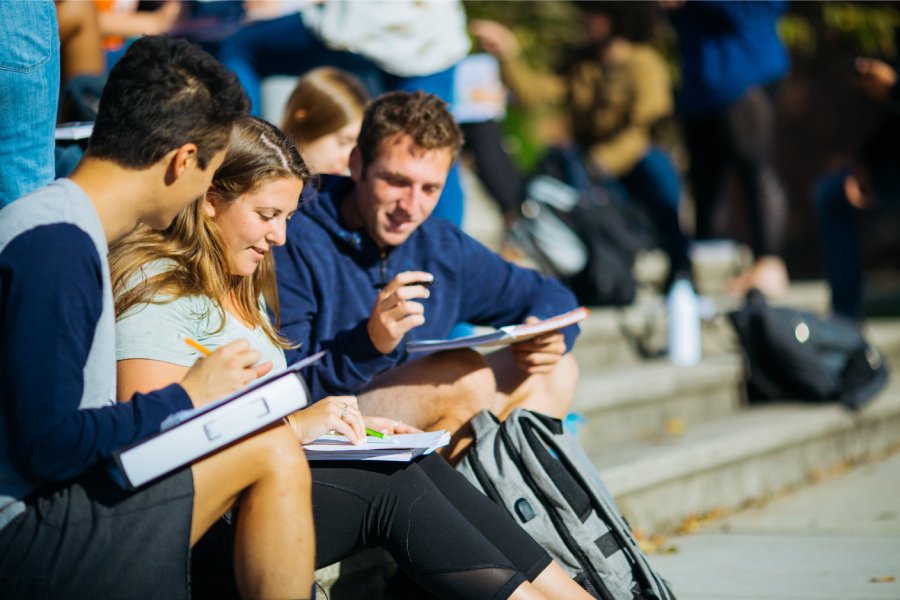
At Gettysburg College, we want to develop within every student an agile mind capable of solving complex problems—and a heart that aspires to do so.
The world that today’s generation of Gettysburgians will graduate into promises to be vastly different than the one experienced by those prior. The employees who will flourish over the next 10, 20, and 30 years are those who will possess an education that connects disparate fields of study—the type of expansive knowledge that cannot be easily replicated or replaced by the emergence of artificial intelligence.
We want to produce graduates who are irreplaceable. An education rooted in the liberal arts and sciences—and reinforced through the intentionality of our Gettysburg Approach—is the best model by which to achieve this lofty goal.
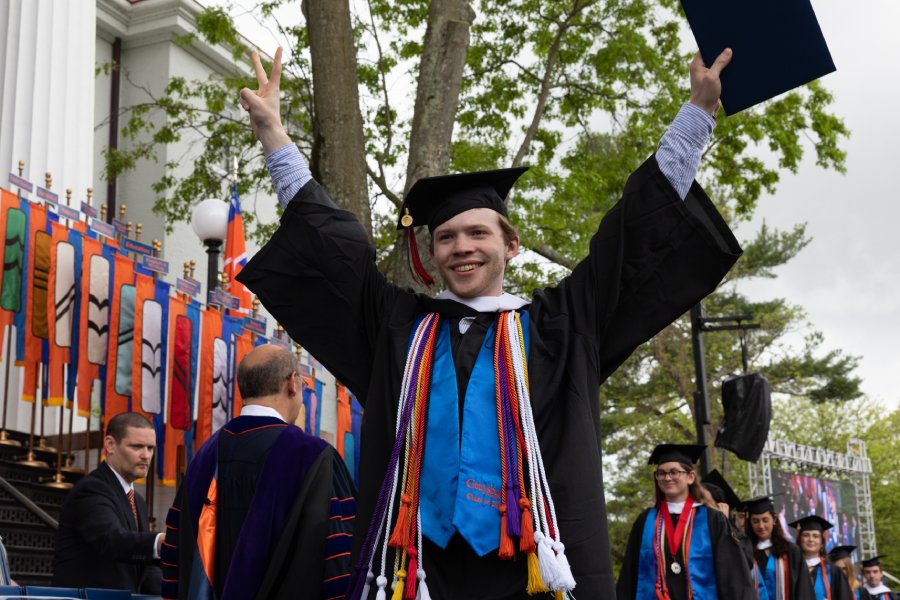
Enduring Skills
The second anchor in our Gettysburg Approach is a renewed and intensive focus on deepening the enduring skills most valued by employers and graduate schools. These skills include:
- Adaptability
- Communication
- Creativity
- Intercultural fluency
- Leadership
- Problem solving
- Teamwork
These transcendent skills can be the hardest to teach, yet at Gettysburg College, they will be practiced, absorbed, reflected upon, and articulated by our students in a purposeful way through a wide range of high-impact learning experiences—giving students an advantage in their next step after college and every step after.
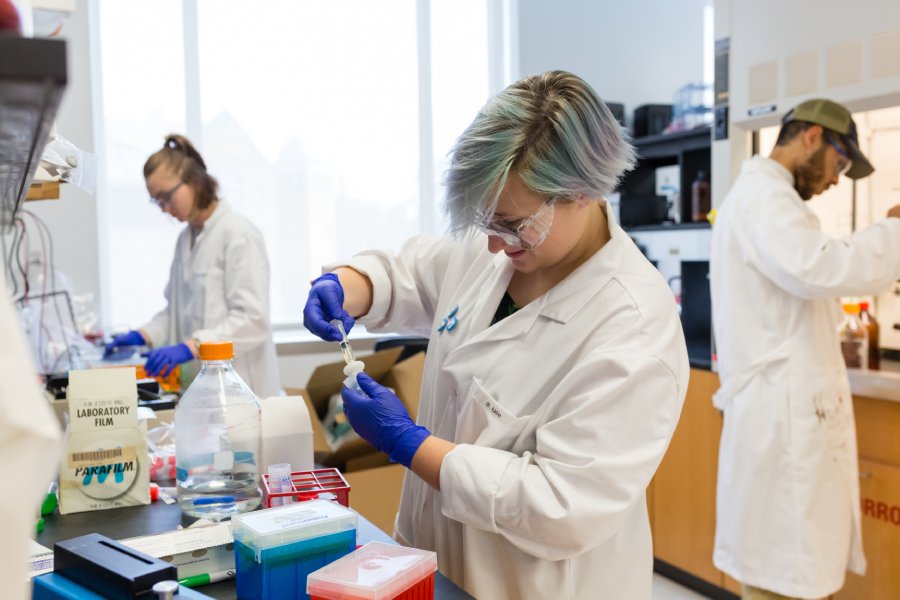
Recently, the American Association of Colleges and Universities (AAC&U) asked employers which skills and aptitudes were most valuable to them in the workplace. Working in teams, critical thinking, analyzing and interpreting data, and problem solving were cited as the most essential. These same skills are cited as career readiness competencies by the National Association of Colleges and Employers.
Here’s what stands out:
The surveyed employers stressed that while college graduates are prepared to succeed in entry-level positions, only half view today’s college graduates as having the necessary skills to advance or be promoted.
In other words, they identified a preparedness gap—a significant divide between the importance employers are placing on specific skills in the working world and their assessment of a college graduate’s readiness to perform those skills effectively.
We have a responsibility to respond to this preparedness gap.
Gettysburg College’s emphasis on enduring skill-building has proven successful for generations of Gettysburgians. For nearly two centuries, Gettysburg graduates have excelled in a wide range of work and service, and have made positive contributions to organizations and communities worldwide.
In fact, a survey of 200 employers even found that Gettysburg College graduates possess and outperform their peers in what employees define as ‘must have’ career skills.
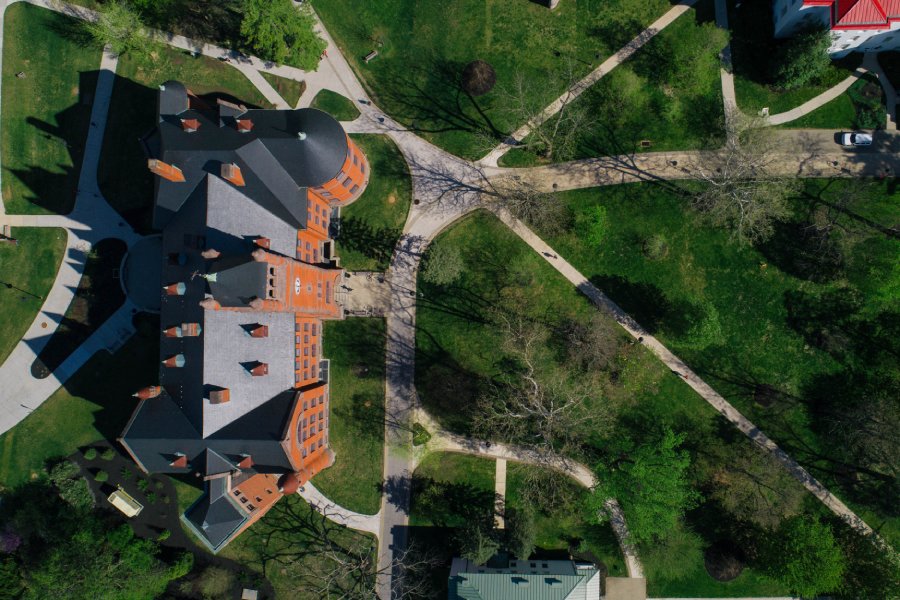
Guided Pathways
Knowledge and enduring skills at Gettysburg College will be practiced and deepened through our new Guided Pathways.
Beginning in Fall 2023, every incoming student will have the opportunity to align their interests with on-campus experiences within a thematic Guided Pathway:
- Creativity, Entrepreneurship, & Innovation
- Global Citizenship & Intercultural Communication
- Justice & Community Change
- Leadership, Teamwork, & Collaboration
Every Guided Pathway will intersect with a four-year Career Pathway that provides students with direct career-related experiences and guidance.
Through the Guided Pathways, students can select experiences in an intentional way, connecting their activities with the skills they hope to strengthen. In addition, the Guided Pathways will provide students with a framework and—together with their Personal Advising Team—the language to articulate what they gained from each experience and how each experience builds upon others and complements their academic work.
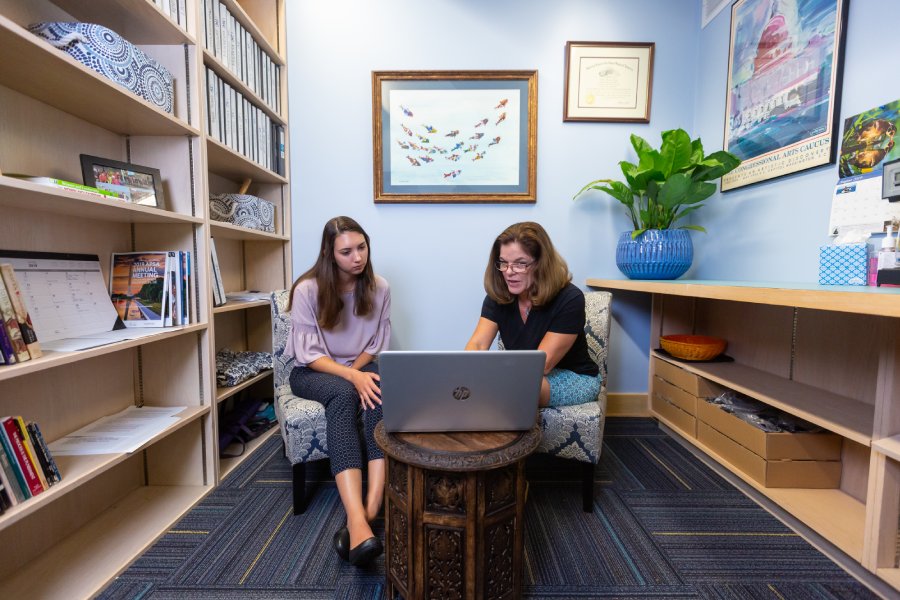
Personal Advising Teams
To ensure our students are getting the very most out of their Gettysburg education, they will now be supported by their own Personal Advising Team.
Comprised of a Faculty Advisor, Co-Curricular Advisor, and Career Advisor, the Personal Advising Team will guide students through their academic progress, reflect with them as they navigate the Career Pathway and their Pathway of choice, and help them to more fully understand the impact of their undergraduate experience—all through 360 degrees of advising.
At the conclusion of their sophomore year, students will have the option of adding an Alumni Mentor to their Personal Advising Team. The Alumni Mentor will assist the student in defining their career goals and building a professional network.
“Students’ professional success is largely defined by the educational path they choose for themselves. At Gettysburg, they don’t have to make that choice alone,” said Vice President for College Life and Dean of Students Anne Ehrlich.
“With the support of a Personal Advising Team, students will intentionally select the out-of-class experiences that will equip them with the enduring skills that align with their passions and the expectations of tomorrow’s employers—experiences that will transform their minds, build their confidence, and position them to have a consequential impact on the world around them.”
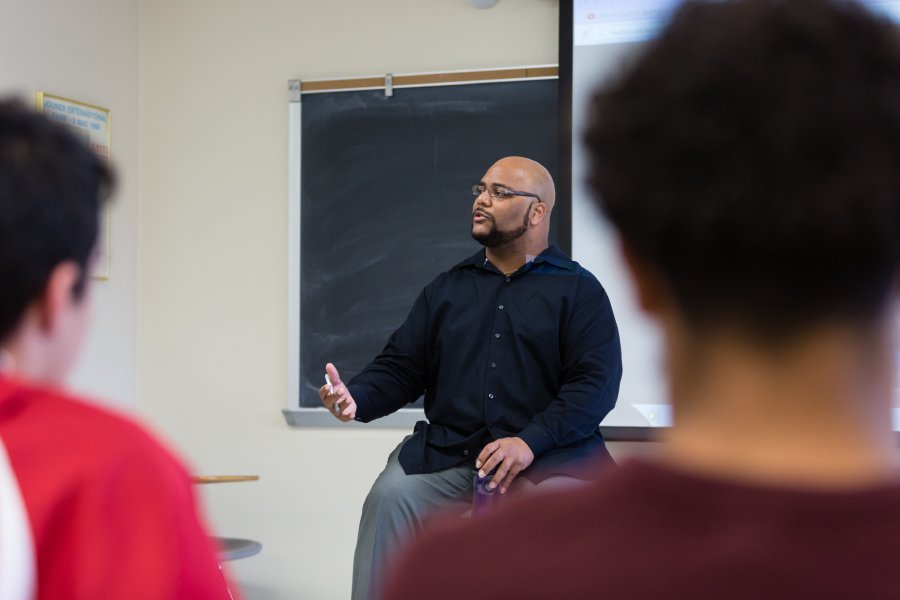
Four Areas of Focus
Gettysburg College has identified Four Areas of Focus to bring the Gettysburg Approach to life and to guide our community’s decision-making and priorities in the years to come.
- Academic Excellence
The bedrock of our experience lies in our commitment to academic excellence through a rigorous and contemporary education in the liberal arts and sciences.
Our education exposes students to the world, provides critical thinking and communication skills, ensures a broad understanding of the human experience, creates disciplinary depth and expertise, expands intercultural understanding, and enhances capacities for empathy and action.
Through exposure to the arts, humanities, social sciences, and natural sciences, our education equips students with the capacity to make sense of and respond effectively to a world that has become ever more complex and interrelated.
We are committed to providing:
- A contemporary, integrated, and rigorous curriculum
- A world-class faculty
- A renewed focus on student advising
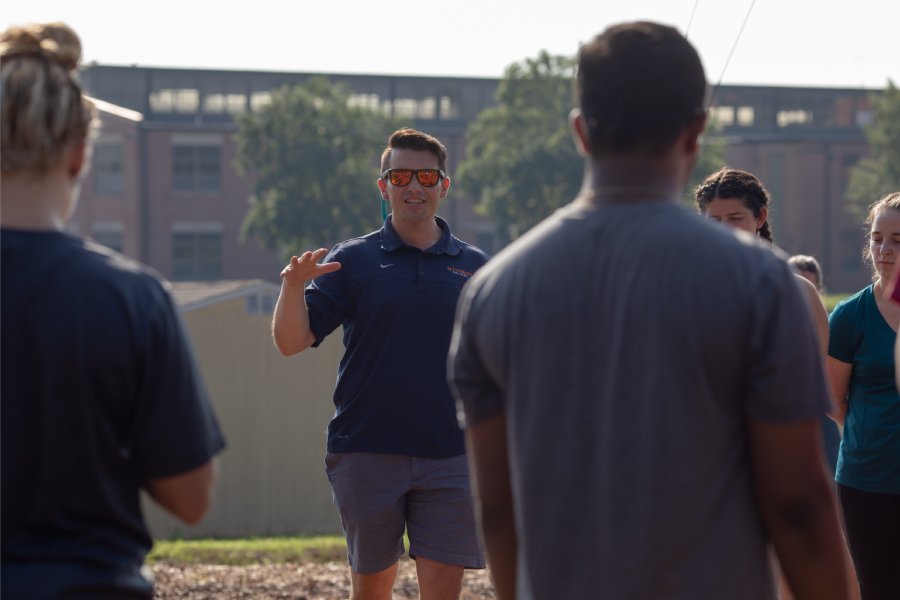
- A Transformational and Integrated Student Experience
A key component of our education is to help students apply what they learn inside and outside of the classroom. This work is essential to ensure that our students are prepared to graduate into careers and communities in which they will be required to lead and adapt, and make sense of a rapidly changing world. We will do this by ensuring that a student’s co-curricular activities serve as impactful opportunities to practice and deepen essential and enduring skills.
We will achieve this by:
- Providing meaningful and coordinated experiential and high-impact opportunities
- Improving student retention
- Strengthening the value of the Gettysburg experience
- Strengthening civic mindedness, intercultural fluency, and place-based learning
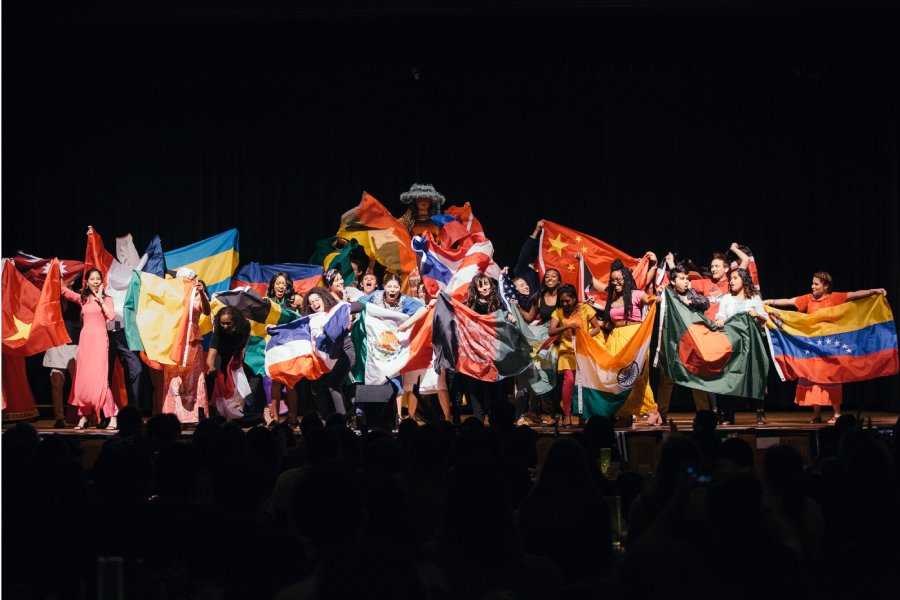
- A Culture of Belonging and Wellness
Our future success rests heavily on our ability to create a culture where every Gettysburgian—students and employees alike—can be full members of our community and be empowered to contribute in ways that strengthen our collective perspective and understanding.
We are committed to:
- Recruiting and retaining a talented and diverse student body
- Recruiting and retaining a talented and diverse workforce
- Providing a holistic approach to student wellness
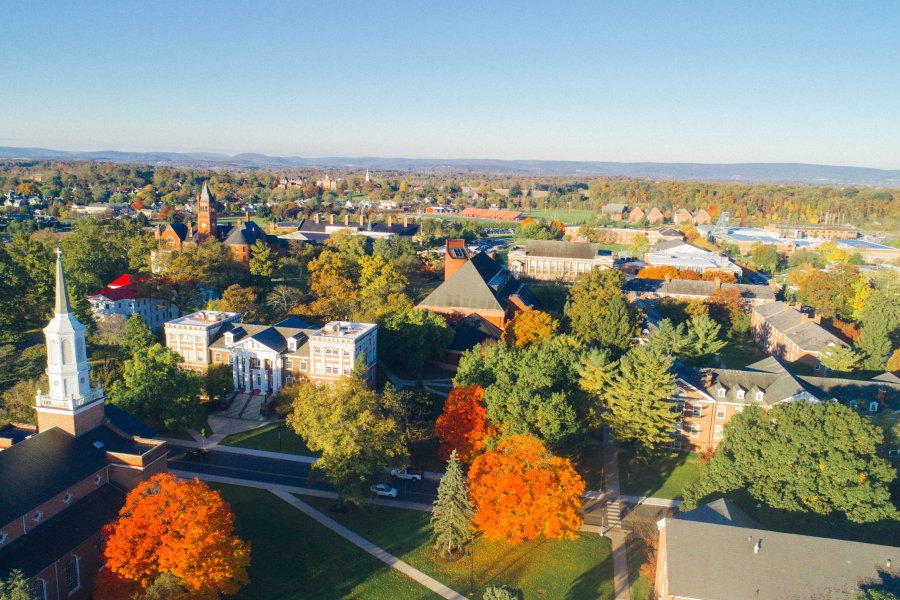
- Institutional Effectiveness
To respond responsibly and effectively to several challenges, including demographic changes resulting in increased competition for talented students and price sensitivity, we must take steps to balance innovation with careful stewardship of our resources to ensure continued institutional effectiveness.
We remain committed to:
- A culture of excellence
- Enhancing our market position
- Increasing and diversifying our revenue streams
Learn more about Gettysburg College’s new Strategic Direction at www.gettysburg.edu/strategic-direction.